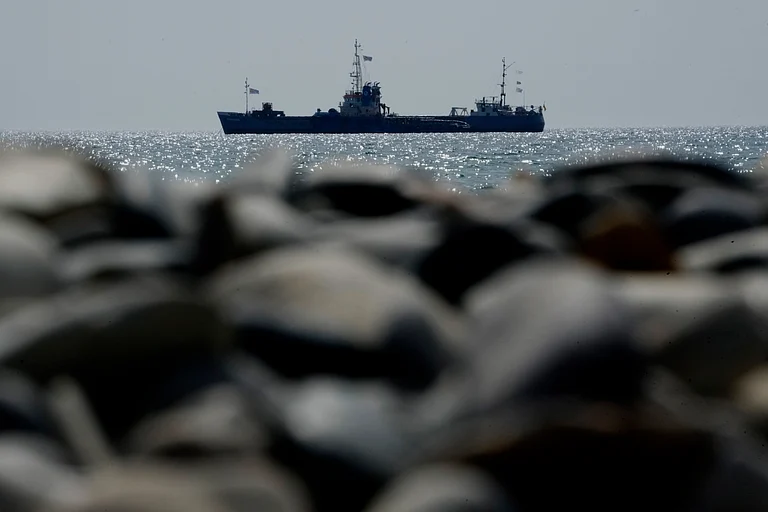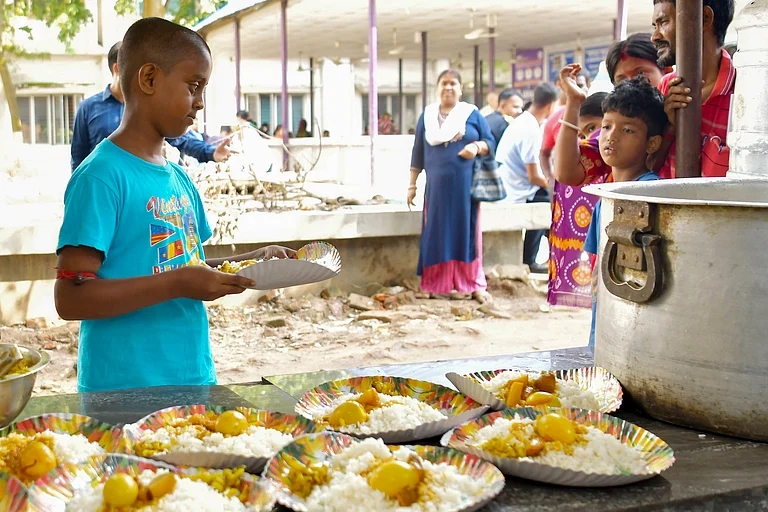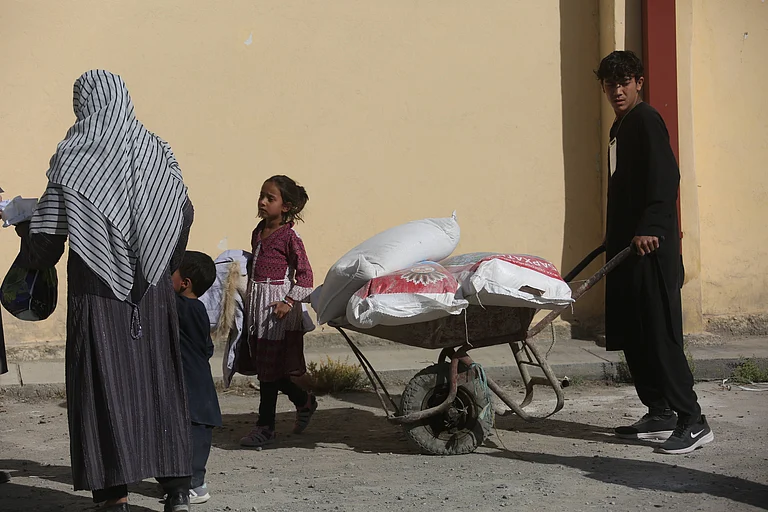United Nations (UN) Secretary General António Guterres on Tuesday said that the climate chaos and food crisis were undermining world peace and worsening the ongoing conflicts in several parts of the world.
Speaking at an open debate the UN Security Council (UNSC), Guterres drew a connection between hunger and conflict and said that hunger accompanies wars. Citing examples of Syria, Myanmar, and Gaza Strip, he said that the "world today is teeming with examples of the devastating relationship between hunger and conflict".
"In Syria, almost 13 million people go to bed hungry after a decade of war and a horrendous earthquake. In Myanmar, conflict and political instability have thrown progress towards ending hunger into reverse. In Gaza, no one has enough to eat. Of the 700,000 hungriest people in the world, four in five inhabit that tiny strip of land," said Guterres, according to a press release from the UN.
Amid prevailing conditions of adverse climate scenarios, conflicts in various parts of the world, and violence in the Red Sea, the situation will deteriorate, food insecurity will rise, and food inflation will resurface, said Guterres.
The comments of the top UN official come at a time when wars are raging in Africa and West Asia, most notably in Gaza and Sudan. The violence unleashed by the Yemen-based Houthi militants in the Red Sea has upended the world shipping and the resultant disruption has affected supply chains and caused delay in shipment deliveries. As of now, 14 countries are considered to be at 'most' risk from climate change and UN's World Food Programme (WFP) estimates that more than 330 million across the world were affected in 2023. For 2024, the WFP has warned of an acute deterioration in 18 'hunger hotspots' early in the year.
Of the 14 countries facing the highest risk of climate change, Guterres said all of them are suffering from conflict and 13 face humanitarian crises.
In his remarks at the UNSC, which come amid outrage over the Israel's War on Gaza and the high toll amongst the Palestinians, Guterres reminded that wars have rules and said starvation of civilians may amount to a war crime. He also said that humanitarian organisations must be given access to conflict-torn regions and should be funded. He noted that the humanitarian organisations were "less than 40 per cent funded" last year.
The comment to fund the humanitarian organisations comes at a time when some countries have suspending funding the UN Relief and Works Agency for Palestine Refugees in the Near East (UNRWA), the UN body for the Palestinians, amid allegations that UNRWA personnel participated in the October 7 attack on Israel and that UNRWA infrastructure was used by Hamas, a militant group based in Gaza which has controlled the Palestinian enclave since 2007.
Before delivering his remarks to the UNSC, Guterres also addressed the situation in Gaza as an Israeli operation in Rafah in southern Gaza looks imminent. In response to a media query, he said he is "particularly worried with the deteriorating conditions and security for humanitarian aid delivery in Gaza". He further flagged the breakdown of public order in the region.
He further said, "At the same time, we have restrictions imposed by Israel that are not improving and limit humanitarian distribution. On the other hand, the deconflicting mechanisms to protect humanitarian aid delivery in relation to humanitarian operations are not effective. And so, my sincere hope is that negotiations for the release of hostages and some form of cessation of hostilities to be successful to avoid an all-out offensive over Rafah, where the core of the humanitarian system is located and that would have devastating consequences."
On the question of deaths of two journalists in the war, Guterres said he was "deeply troubled" by the toll among the journalists. He added, "Freedom of the press is a fundamental condition for the people to be able to know what is really happening everywhere in the world."






.jpg?w=801&auto=format%2Ccompress&fit=max&format=webp&dpr=1.0)



















